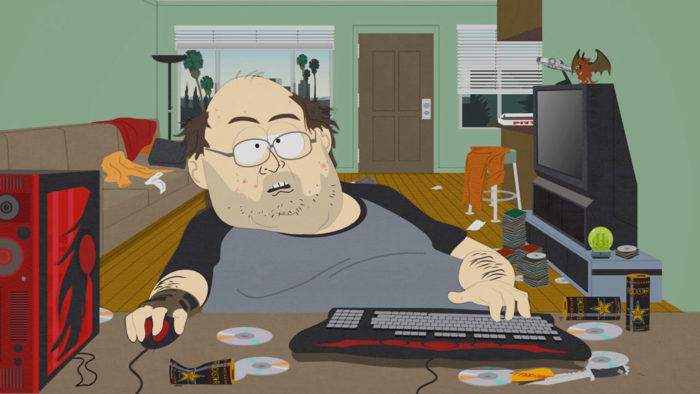Gamers Are Anti-Social

There are some studies that suggest playing video games can actually help players become more social, but you wouldn’t think that based on how gamers are portrayed in mainstream media. Time and time again, avid gamers on TV are portrayed as your stereotypical nerd that fears human interaction and struggles to find common grounds with others outside of the gaming community.
The Big Bang Theory has an entire main cast built around the concept that being interested in comic books and video games have turned them into a collective group of anti-social adults. While the character development has certainly managed to develop more over time, there’s no arguing that the show’s foundation is rooted in a rather dated stereotype.
Video Games Make You Violent

The idea that violent video games also make their players violent is an unsubstantiated claim that just doesn’t seem to be fading away quickly enough. Time and time again, studies have shown that violent video games do not have a proven direct correlation with how violent a person is. At the very most, some studies have found that it provides a huge pump in adrenaline and energy but, ultimately, gamers didn’t actually become more violent. One of the latest studies focused on levels of empathy after playing violent video games. Researchers actually set out to prove that violent video games reduce players’ levels of empathy, but the results of their experiments proved that gamers had the same amount of empathy as those who didn’t play the violent games.
Despite multiple studies disproving the theory that playing violent games make players violent, that idea is still present throughout much of mainstream media. One example that garnered quite a bit of attention was an episode of CSI: Miami that aired in 2007 titled Urban Hellraisers. The episode was centered around a suspect who was committing a string of murders in an attempt to replicate a Grand Theft Auto-like game.
Avid Gamers Are Overweight and Unhealthy

It’s not uncommon to see gamers depicted as grossly overweight people who are unkempt and simply rotting away in front of a computer or television screen. Who can forget NWBZPWNR from South Park? Commonly referred to simply as “the World of Warcraft” guy, NWBZPWNR is a textbook example of how the media still struggles without figuring out what gamers actually look like and what kind of lives they live. This is not to suggest that these characters aren’t often pretty hilarious in many cases but such characters, nonetheless, support a stereotype about gamers that simply misrepresents the gaming community as a whole.
Video Games Are Child’s Play

Oftentimes, if a gamer isn’t portrayed as some anti-social adult dwelling in their parents’ basement, they must still be a child. An entire episode of American Dad was dedicated to this premise as Stan did his best to pull Steve and his friends away from their video games. The idea was that it was time for Steve to spend more time outdoors so he could mature into a “real man.” To be fair, there are a lot of young gamers out there, so Steve in and of himself was not necessarily a flawed portrayal in terms of age.
The problem, however, comes from the lack of alternatives present in mainstream media. This is particularly troubling, considering that the average gamer is actually far older than Steve and his friends. The Entertainment Software Association published a report in 2016 that revealed the average male gamer is 35 and the average female gamer is 44.
Women Don’t Play Games

Of all the ways gamers and gaming culture are still portrayed in mainstream media, you’d have your work cut out for you if you wanted to find some great examples of women in the media playing video games. In fact, mainstream media is far more likely to play up the idea that a woman being a gamer as an anomaly than it is to simply have a female gamer present without a shtick. The truly ironic part of it all is that women actually represent far more of the gaming community than most people think. In a 2015 Pew Research Center survey, 42 percent of the participants who owned a gaming console identified as female and statistics released earlier this year found that 41% of gamers are female.
Pro Players are Athletes Too

This is a relatively new portrayal of gaming and one that is certainly being welcomed with open arms. Esports are earning more and more traction in the realm of mainstream entertainment with tournaments making their way to major television networks and packing out arenas that would usually be reserved for today’s biggest music stars. While many members of the gaming community often viewed pro players as professional athletes, it was rare to see this represented in the media.
Now, however, even TBS has dedicated an entire show to the idea that they are. ELEAGUE has had CS:GO, Overwatch, and Street Fighter V players highlighted and presented in mainstream media as athletes complete with player stat recaps and highlighting key plays of each game.





Published: May 16, 2017 09:30 am